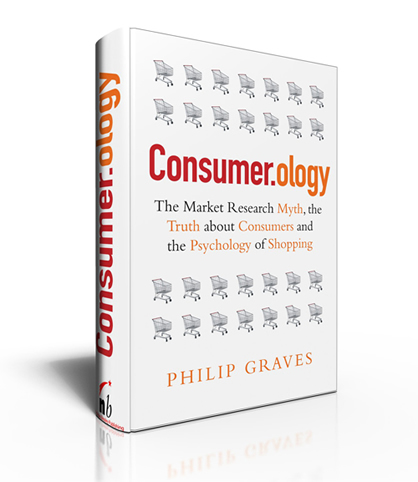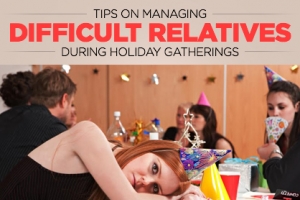New book reveals psychology behind shopping
We all buy things we don’t want. Well, now there’s hope. Consumer behavior consultant Philip Graves, in his newly revised book “Consumer.ology: The Truth About Consumers and the Psychology of Shopping,” details the many tricks and games luxe shops use to deceive their consumers, resulting in high-handed manipulation of these shoppers into buying items they do not need or want. Want to lower your spending habits? Read on. Graves can help your understand your consumer nature and the science behind it.
The just released second edition of “Consumer.ology” reveals the false thinking behind market research, based on Graves’ 15 years of experience.
“Market research was either wrong, didn't seem to explain what was happening at all well or was received with skepticism by people who were working on the 'front line' with consumers every day. I started to explore different techniques, like secretly observing customers before interviewing them, and discovered that they often didn't know what they'd done and that their explanations for their behavior didn't stack up. This led to me studying psychology and I found that the studies I was reading about did a much better job of explaining why people behave in the way they do,” Graves explained.
The book’s underlying theme is that if you desire to comprehend your own consumerism, you must understand the part that your unconscious mind plays in your behavior. Understanding how the brain works leads to understanding how and why you shop. The only way to change your behavior is to realize that your thoughts can be controlled by your experience in the store and not what you believe or think, and that you need to understand how the science of the brain.
.png)
Graves explained his motivation for writing the book, declaring, “I hope (readers) will understand their own purchase decisions better and, ultimately, make choices that they feel happier with for longer. We're all familiar with that feeling of buying something in the sales and then finding we hardly ever wear it: Away from the store and the sale it loses it can lose its allure. We keep buying from sales despite this though because, like gamblers, we tend to only remember the big wins. I also hope more people will say ‘no’ to taking part in market research surveys: they'll be helping the companies more than they know!”
The author backs up his assertions with hard evidence. Psychologists estimate that roughly 95 percent of our behavior is driven by what occurs in the unconscious mind. For example, shoppers may spend up to three times as much on a bottle of wine if they are listening to classical music. Another study found individuals buy more jam when presented with a selection of six jars rather than 24. Or just by altering the picture on a website people can be far more likely to buy something.
The three most common factors causing people to buy more than they want, according to Graves, are: (1) not realizing how it is not the item itself they makes us purchase it, but rather something around the item; (2) idealizing the future rather than being realistic; and (3) finding more pleasure from a product that costs more.
“Ultimately, people believe in the idea of market research because they would like to think it works and because they forget about the times it didn't: Such wishful thinking is something to which human beings have a long history of susceptibility!” Graves explained.
An author, a consultant and a speaker, Philip Graves operates a consultancy business that has advised many global companies, such as BBC, Whirlpool and Virgin Media. He is employed as a writer on consumer psychology for the Chartered Institute of Marketing magazine, The Marketer.
For more information, visit www.philipgraves.net.
Tagged in: shopping, book, psychology, philip graves, consumerology,

Photo Courtesy of philipgraves.net



